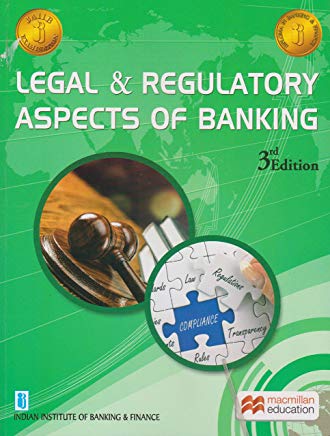JAIIB LRAB Unit 38 - Limitations of Suits, Appeals and Applications (Year: 2019)
It is absolutely necessary that every suit or application or appeal shall have to be made within the period of limitation. Section 3 of the Limitation Act declares that every suit instituted, appeal preferred, and application made after the prescribed period shall be dismissed although limitation has not been set up as a defence. A suit is instituted when the plaint is presented to the proper officer in the court. In the case of set off or counterclaim, they shall be treated as a separate suit and shall be deemed to have been instituted:
(a) in the case of a set off, on the same date as the suit in which the set off is pleaded;
(b) in the case of a counterclaim, on the date on which the counter-claim is made in court.
Computation of the period of limitation
(a) When the period of limitation expires on a day when the court is closed, the suit, appeal or
application may be instituted, preferred or made on the day when the court reopens.
(b) Any appeal or any application other than execution petitions may be admitted after the prescribed period, if the appellant or applicant makes out sufficient cause for not preferring the appeal or application within the period of limitation.
(c) In computing the period of limitation, the day from which such period is to be reckoned, shall be excluded. The computation of the period of limitation for filing appeal shall exclude the
day on which the judgment complained was pronounced and the time taken for obtaining a copy of the decree, sentence or order appealed. Time required for obtaining a copy of the order or award shall be excluded while computing the time limit for filing revision or review application or an application to set aside the award.
(d) For an application for execution of decree, the period during which the institution or execution has been stayed by injunction or order, the day on which the order was issued or made and the day on which it was withdrawn shall be excluded.
(e) For filing any suit of which notice has to be given, or for which the previous consent or sanction of the Government or any other authority is required, in accordance with the requirements of any law for the time being in force, the period of such notice, or the time required for obtaining such consent or sanction shall be excluded.
(f) In computing the period of limitation for any suit, the time during which the defendant has been absent from India and from the territories outside India under the administration of the
Central Government shall be excluded.
ACTS GIVING RISE TO FRESH PERIOD OF LIMITATION
There are two instances which will give rise to fresh period of limitation. In these cases the period of limitation will be computed as if the starting point is the happening of the instances.
1. Where before the expiration of the prescribed period for a suit or application in respect of any property or right, an acknowledgement of liability in respect of such property or right has been made in writing signed by the party against whom such property or right is claimed, or by any person through whom he derives his title or liability, a fresh period of limitation shall be computed from the time when the acknowledgement was so signed.
2. Where payment on account of a debt or of interest on a legacy is made before expiration of the prescribed period by the person liable to pay the debt or legacy or by his agent duly authorised in this behalf, a fresh period of limitation shall be computed from the time when the payment was made. In this case 'debt' does not include money payable under a decree or order of a court.
JAIIB Study Material
| JAIIB Paper 1 Study Material |
| JAIIB Paper 2 Study Material |
| JAIIB Paper 3 Study Material |


